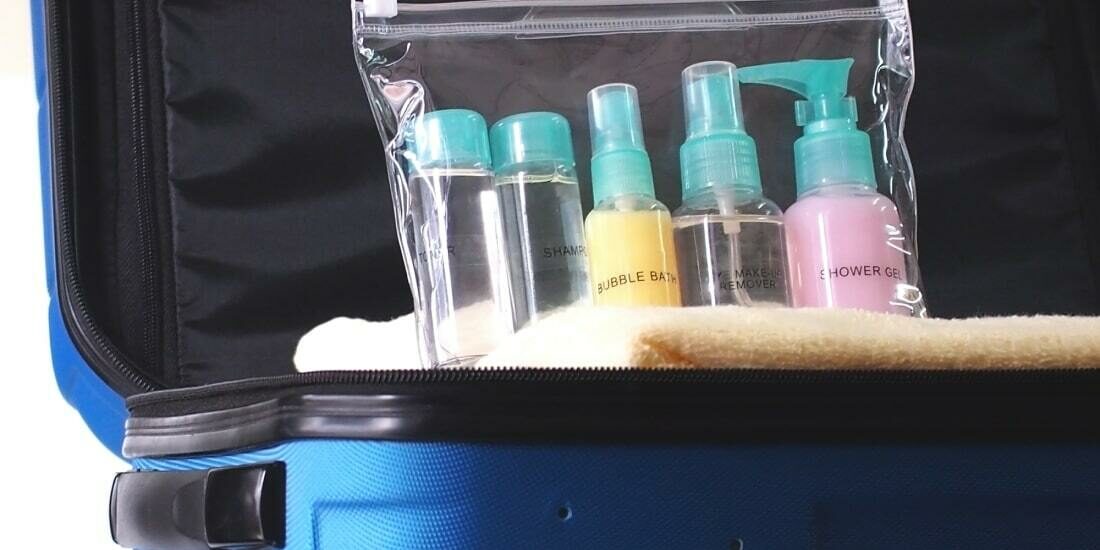London City Airport Could End Small Plastic Bottles

Travel bottles of shampoo, mouthwash and toothpaste could soon be a thing of the past, thanks to upgraded scanners at London City Airport. These scanners allow for flyers to pack up to two litres in hand luggage, essentially removing the need to downsize just for travel. As more airports across the world start to upgrade to these state-of-the-art scanners, we could see a lot less plastic pollution.
Being the first mainstream airport to have upgraded to computed tomography technology, the Docklands Airport provides a three dimensional scan of hand luggage contents. Not only liquids, but electronics can also benefit from this, allowing for queues to file through security at a much faster pace. Thanks to rolling out the technology after an initial trial, City Airport boasts the fastest security gates in London.
Able to process up to 550 trays an hour in each lane, threat detection is greatly improved, negating the need for much smaller plastic bottles that can easily find their way into landfill or the sea. Teesside International Airport replaced two scanners in March and other airports across the world are also trialling the security, including Australia and the Netherlands.
After the height of the pandemic when travel restrictions were lifted, it wasn’t uncommon to see bins spilling over with plastic waste, including water bottles and big bottles of toiletries. People had forgotten about the restrictions to liquids and waste increased needlessly as a result. Better technology such as these airport scanners will remove this problem entirely and keep the environment free of additional plastic waste.
It is widely estimated that at least 980 tonnes of travel sized products aren’t recycled in a single year. To put this into perspective, it’s the equivalent to 2.5 Boeing 747s. According to research conducted by Direct Line in 2018, 6.5 million adults don’t go on to recycle these small plastic containers. This was either because they didn’t feel the need to or couldn’t find recycling facilities at their holiday destination.
Not only are these tiny toiletries more polluting to the environment, they are more expensive. Despite containing around 2.7ml of liquid per gram, 5.1ml of fluid per gram is seen in standard sized packaging. A higher proportion of plastic is then needed to see the same levels of fluid, essentially generating more waste.
Previous advice was to bring back empty toiletry containers and recycle them at home or to use refillable bottles. Now that airports are starting to implement new scanning technology, this will alleviate this problem entirely. The only issue while the scanners are being trialled and rolled out across the world is that lower liquid allowances might be in place for your return flight. It’s important to check the destination you’re going to before you go so you can avoid unnecessary plastic waste.
By taking airport security scanning into the future, 3D images can be processed by algorithms and scientific means instead of solely relying on the human touch. Creating a speedy route through airports will not only resolve a lot of stress and long queues, but also hopefully remove the need for excessive plastic waste to exist.
